-
Product Name
CTGF antibody
- Documents
-
Description
CTGF Rabbit Polyclonal antibody. Positive WB detected in mouse heart tissue, Transfected HEK-293 cells. Positive IF detected in HepG2 cells, HeLa cells. Positive IHC detected in human heart tissue, human colon cancer tissue, human hepat℃irrhosis tissue. Observed molecular weight by Western-blot: 38 kDa
-
Tested applications
ELISA, WB, IHC, IF
-
Species reactivity
Human; other species not tested.
-
Alternative names
CCN family member 2 antibody; CCN2 antibody; CTGF antibody; HCS24 antibody; IBP 8 antibody; IGF binding protein 8 antibody; IGFBP 8 antibody; IGFBP8 antibody; NOV2 antibody
-
Isotype
Rabbit IgG
-
Preparation
This antibody was obtained by immunization of CTGF recombinant protein (Accession Number: NM_001901). Purification method: Antigen Affinity purified.
-
Clonality
Polyclonal
-
Formulation
PBS with 0.02% sodium azide and 50% glycerol pH 7.3.
-
Storage instructions
Store at -20℃. DO NOT ALIQUOT
-
Applications
Recommended Dilution:
WB: 1:200-1:2000
IHC: 1:20-1:200
IF: 1:50-1:500
-
Validations
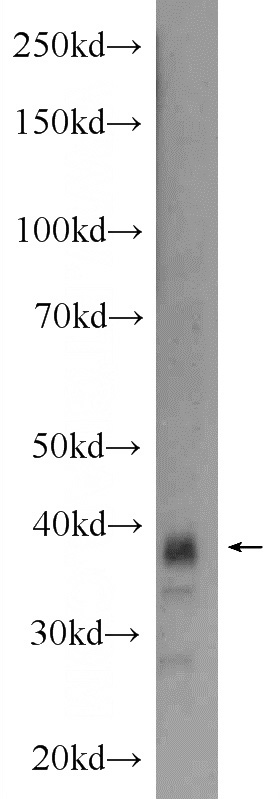
mouse heart tissue were subjected to SDS PAGE followed by western blot with Catalog No:109723(CTGF Antibody) at dilution of 1:600
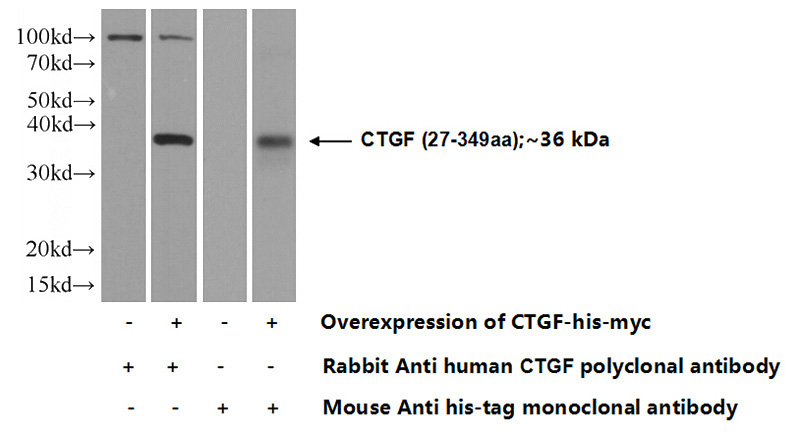
Transfected HEK-293 cells were subjected to SDS PAGE followed by western blot with Catalog No:109723(CTGF Antibody) at dilution of 1:1000
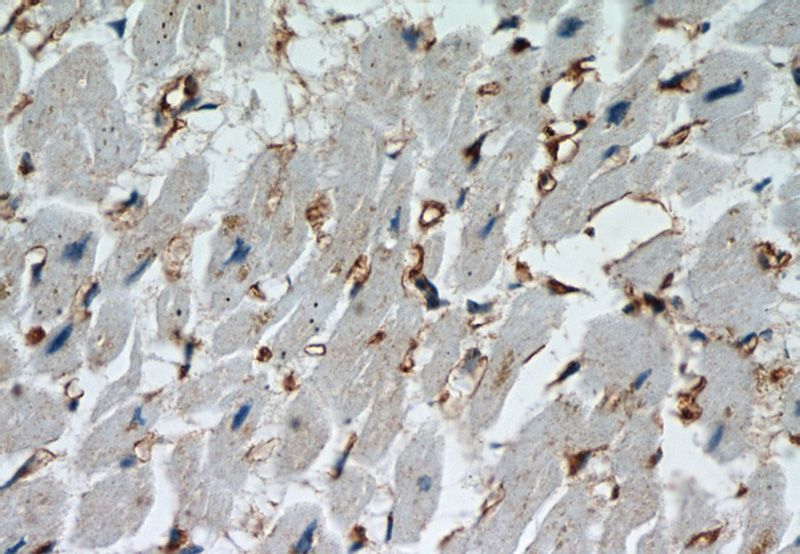
Immunohistochemistry of paraffin-embedded human heart slide using Catalog No:109723(CTGF Antibody) at dilution of 1:50
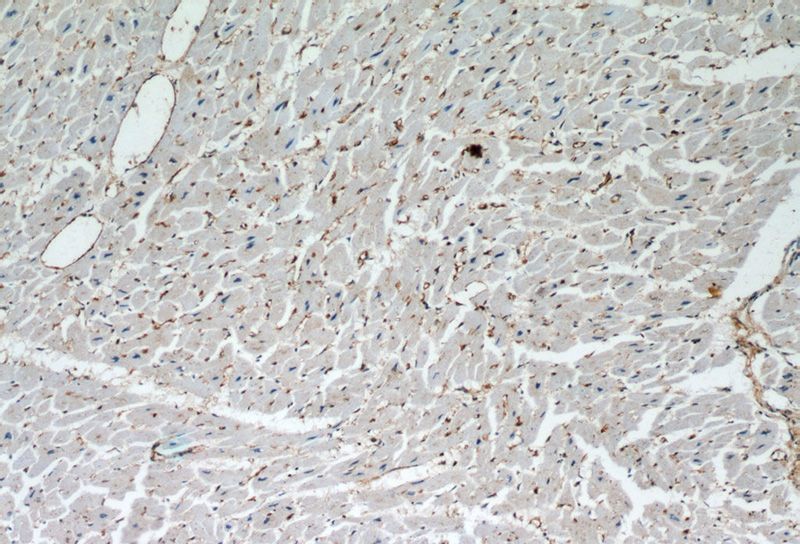
Immunohistochemistry of paraffin-embedded human heart slide using Catalog No:109723(CTGF Antibody) at dilution of 1:50
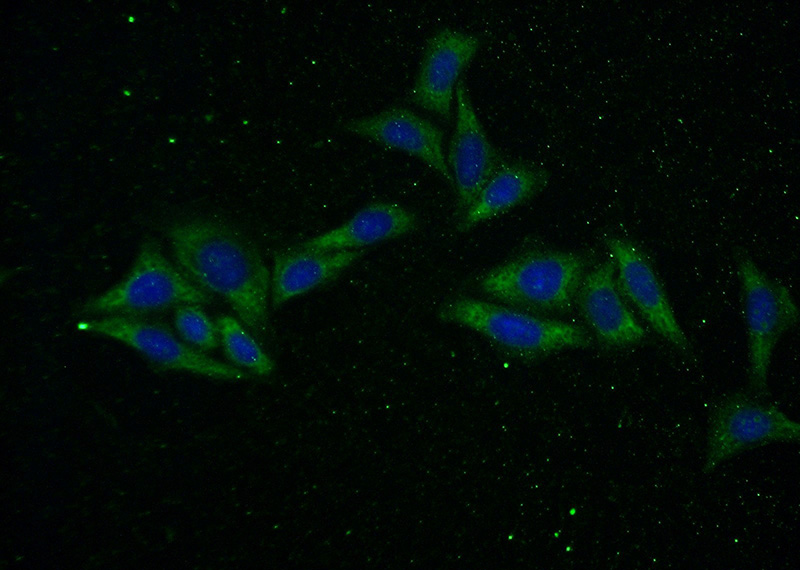
Immunofluorescent analysis of (-20oc Ethanol) fixed HepG2 cells using Catalog No:109723(CTGF Antibody) at dilution of 1:50 and Alexa Fluor 488-congugated AffiniPure Goat Anti-Rabbit IgG(H+L)
-
Background
CTGF, also known as CCN2 or connective tissue growth factor, is a member of the CCN family of matricellular proteins. CTGF, a cysteine-rich, matrix-associated, heparin-binding protein, is widely expressed in various human tissues and organs. CTGF has important roles in many biological processes, including cell adhesion, migration, proliferation, angiogenesis, skeletal development, and tissue wound repair, and is critically involved in fibrotic disease and several forms of cancers. In western blotting, there are three different forms of CTGF reported: monomeric forms at approximately 36-38 kDa, homodimeric forms at approximately 70 kDa, and lower molecular mass fragment forms.
-
References
- Wang Y, Cui M, Sun BD, Liu FB, Zhang XD, Ye LH. MiR-506 suppresses proliferation of hepatoma cells through targeting YAP mRNA 3'UTR. Acta pharmacologica Sinica. 35(9):1207-14. 2014.
- Gao Y, Wang Y, Feng J. A hairpin within YAP mRNA 3'UTR functions in regulation at post-transcription level. Biochemical and biophysical research communications. 459(2):306-12. 2015.
- Xu W, Wei Y, Wu S. Up-regulation of the Hippo pathway effector TAZ renders lung adenocarcinoma cells harboring EGFR-T790M mutation resistant to gefitinib. Cell & bioscience. 5:7. 2015.
- Li L, Fang R, Liu B. Deacetylation of tumor-suppressor MST1 in Hippo pathway induces its degradation through HBXIP-elevated HDAC6 in promotion of breast cancer growth. Oncogene. 2015.
Related Products / Services
Please note: All products are "FOR RESEARCH USE ONLY AND ARE NOT INTENDED FOR DIAGNOSTIC OR THERAPEUTIC USE"
